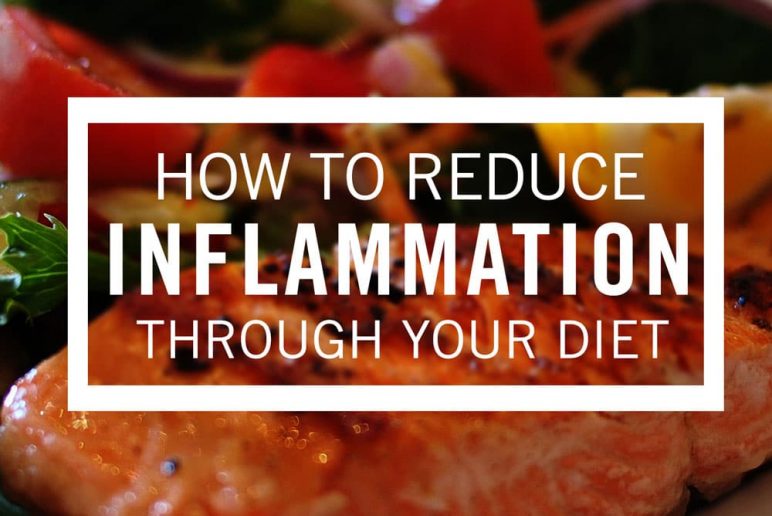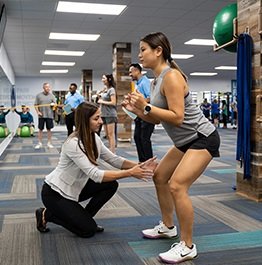
How to Reduce Inflammation through Your Diet
May 14, 2015What is Inflammation?
Do you have joint pain and stiffness? Are you consistently taking ibuprofen, naproxen, or aspirin to alleviate pain? Does your pain increase after rest such as with prolonged sitting or upon rising in the morning? If you have answered yes to any of these questions you may be suffering from too much inflammation!
Inflammation is part of the body’s natural immune response and is necessary for healing. However, when there is too much inflammation or that inflammation hangs around too long it can cause damage to the body. As you may have guessed, there is a natural way to both prevent and fight inflammation with the foods we eat.
Food to Eat [Anti-inflammatory]
1. Fatty Fish
[Salmon, mackerel, tuna, and sardines] – These have Omega-3 fatty acids which have been shown to reduce inflammation
2. Whole grains
These have more fiber and less sugar which reduce levels of C-reactive protein (a marker of inflammation in the blood)
3. Dark leafy greens
[Spinach, kale, broccoli, and collard greens] – Which consist of vitamin E, calcium, and iron which have disease-fighting phytochemicals
4. Nuts
[Especially almonds] – These are rich in fiber, calcium, vitamin E, Omega-3 fatty acids, and are packed with antioxidants which can help your body repair damage from inflammation.
5. Soy
[Milk, edamame, and tofu] – Estrogen-like compounds found in soy have been shown to reduce CRP and inflammation levels in women. Avoid processed soy which may not include the same benefits.
6. Low-fat Dairy
[Yogurt, milk] – Contains vitamin D and calcium which are good for everyone because they improve bone strength. In regards to inflammation, dairy is a good source of probiotics which can reduce gut inflammation.
7. Peppers
[Bell, chili, cayenne] – Both mild and hot peppers contain capsaicin, which is a chemical used in topical medicine to reduce pain and inflammation. These veggies are good in general because they have high quantities of antioxidants and carry less starch.
8. Tomatoes
[Raw, cooked, juice] – Although tomatoes are another nightshade veggie they contain lycopene which has been shown to reduce inflammation in the lungs and throughout the body. Cooked tomatoes have even more benefit so pasta sauce may be the way to go.
9. Beets
These not only decrease inflammation but also protect against cancer and heart disease as they contain fiber, vitamin C, and plant pigments called betalains.
10. Ginger and Turmeric
These are spices common in Asian and Indian cooking. Turmeric is the ingredient that gives curry its yellow color and turns off the protein that triggers the process of inflammation. Meanwhile, ginger has been shown to reduce intestinal inflammation.
11. Garlic and Onions
Known for their immunity-boosting properties, they have been shown to work similarly to NSAIDs (Nonsteroidal anti-inflammatory drug) by shutting off pathways that create inflammation.
12. Olive Oil
[Especially Extra-Virgin] – This has a compound known as oleocanthal, which has been shown to have an effect similar to NSAIDs in the body.
13. Berries
[Raspberries, blueberries, strawberries] – All fruits are good at fighting inflammation because they are low in fat and calories and high in antioxidants. Raspberries prevent arthritis, blueberries protect against intestinal inflammation including ulcerative colitis, and strawberries lower CRP in the blood.
14. Tart cherries
In a 2012 study, tart cherries were suggested to have the “highest anti-inflammatory content of any food”. Just make sure the cherries are in fact tart because the sweet ones don’t seem to have the same effect.
Foods to Avoid [Inflammatory]
1. Sugar
Too much sugar alerts the body to send out extra immunity messengers, called cytokines, a protein that signals inflammation.
2. Saturated/Trans Fats
Induce inflammation by damaging cells in the lining of blood vessels.
3. Omega-6 Fatty Acids
These are mainly found in processed foods and vegetable oils
4. Bread, cereal, rice, pasta
These all break down quickly into sugar and are known as “empty calories” because they do not provide us with needed nutrients.
5. Alcohol
Consuming alcohol leads to bacteria passing through the intestinal lining leading to irritation and inflammation. As alcohol is metabolized it breaks down immediately into sugar.
6. Milk
[2% and higher] – This can sometimes trigger inflammation in people who have allergies and intolerances to casein, which is the protein found in dairy. Milk also contains saturated fat which could mean trouble.
7. Night shade veggies
[Tomato, potato, eggplant, pepper, tomatillo, and goji berries] – Some doctors and patients believe these veggies can exacerbate inflammation in those with rheumatoid arthritis. Like milk products pay attention to your diet and your symptoms and find what works best for you.
Need more practical tips for dealing with pain caused by inflammation? Sign up for a free assessment with one of our physical therapists or contact us with any additional questions!
Print, share or pin this handy guide listing ways that you can fight inflammation through your diet with a friend or family member!

Reader Interactions
Leave a comment
You must be logged in to post a comment.






